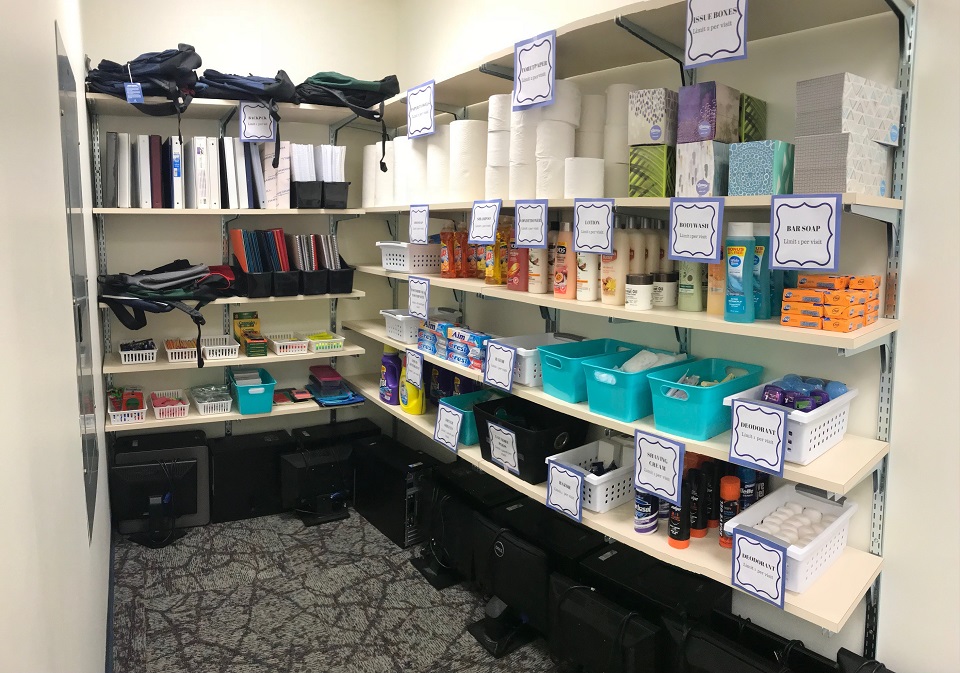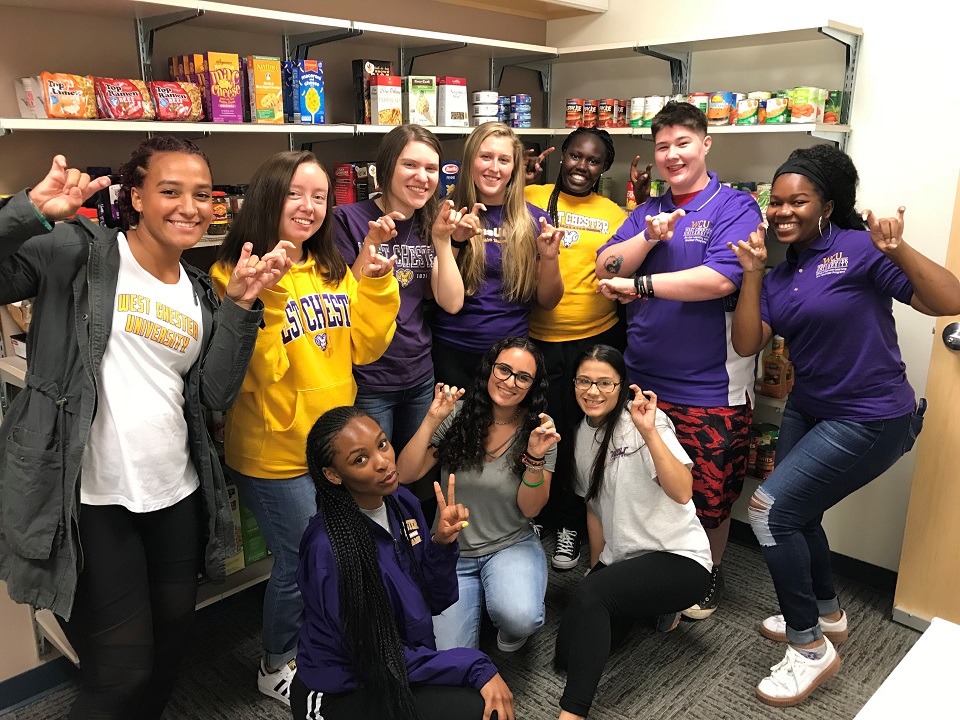Meet the Community Partner: West Chester University Resource Pantry
At the Chester County Food Bank, our mission is to mobilize the community to ensure access to real, healthy food. Although we have programs that focus on supporting children, families and senior citizens, the truth is that there are vulnerable people across all demographics.
A specific demographic that might not come to mind is college students. It’s a mistake to assume that just because someone got accepted into an institution of higher learning, he or she doesn’t have to worry about food. Yes, most colleges have meal plans, but there are many students — both traditional and non-traditional — who struggle to eat enough food each day. In fact, according to a 2017 study published by Temple University, 36 percent of college students disclosed some level of food insecurity.
One way that we’re working to address this problem is through our partnership with the West Chester University Resource Pantry. This on-campus resource, which opened in September 2016, aims to “eliminate barriers to degree completion for students with financial need by providing access to resources, while empowering students to learn independent living skills and achieve long-term stability,” according to its website. The WCU Resource Pantry is open to all enrolled undergraduate and graduate students, with no proof of income necessary. Students don’t need an appointment; they’re welcome to simply walk in during the hours of operation to look for nonperishable food, fresh produce from the campus gardens, personal care items, school supplies and winter and career clothing.
Kate Colyer, M.A., assistant director of Service-Learning and Volunteer Programs, is one of the key staff involved with the WCU Resource Pantry. She says that CCFB’s involvement has been invaluable for the establishment and growth of the pantry.
“Chester County Food Bank has been our strongest advocates,” she noted. “They were integral to engaging in conversations with my office and the Office of Financial Aid and some other community stakeholders before we opened. Now they allow us to come shopping at the Food Bank as often as we need to supplement our food item shelves.”
We’ve also helped the WCU Resource Pantry apply for AmeriCorps Vista grants, and members of our staff sit on the pantry’s advisory board. Kate says that she’s in contact with CCFB staff — like Claudia Rose-Muir, Direct Distribution & Procurement Manager, and Phoebe Kitson-Davis, Director of Agency & Community Partnerships — on a weekly basis. One instance of how we’ve helped problem-solve with the pantry is with inventory management.
“Inventory management and sourcing has a been a huge challenge for us because we are so new,” Kate explained. “CCFB has spent time on the phone and have come out to consult how to effectively lay out our spaces. They also helped us decided to purchase technology to manage our inventory.”
The inventory at the WCU Resource Pantry comes from a number of community partners, and whether it’s food, toilet paper, a nice blazer for job interviews or printer paper, the goal is to provide a comfortable, shame-free place where anyone can come to ask for help. Located in the ground level of a residence hall adjacent to the student health center, the Resource Pantry was recently renovated to improve the student experience even more.
“We’re increasing the dignity [of the experience] with shelves, lounge furniture, etc., that make it feel like real shopping,” Kate said. “We’re building relationships with our students. Once we have their trust, we ask them how they feel about the experience — and take their feedback.”
She notes that at first, the Resource Pantry staff was perhaps overly sensitive to diffusing the stigma that some students might feel in asking for help, and were extremely cautious to make sure there was ample confidentiality and the space was discreet. But, she says, they’ve learned that this made the space too hard to find, and have evolved to address that.
“The more that we’ve been open and transparent and trying to empower our students and help raise awareness, we’re helping to destigmatize the experience,” she said. “A lot of students seem more than happy to tell their peers that they shop here.”
Throughout the span of the 2017 academic school year, the Resource Pantry served 487 students. So far in 2018 (its third year in operation), the pantry has served 452 unique students, and has distributed nearly 6,000 pounds of food, 5,800 personal care products, more than 1,000 school supplies, 123 items of professional attire and 80 winter items. And that’s just between late August and late November of 2018! It’s clear that the Resource Pantry is addressing a real need on campus, and that as awareness grows, even more students will be able to find what they need to succeed in school — whether that’s food each week or a snack on a day they forgot their wallet.
We’re proud to support and work with this dynamic, innovative pantry. It’s just one more way that we’re fighting hunger in our community.
Want to learn more? Check out our mission video, sign up for our newsletter and stay connected. You can also donate food, funds and time to help us achieve our mission. Call (610) 873-6000 to speak to someone about getting involved or requesting a tour. Thanks to you, we’re growing a healthier community.
The Chester County Food Bank is the central hunger relief organization serving more than 120 food cupboards, meal sites and social service organizations throughout Chester County. We mobilize our community to ensure access to real, healthy food.
Photos: WCU Resource Pantry


